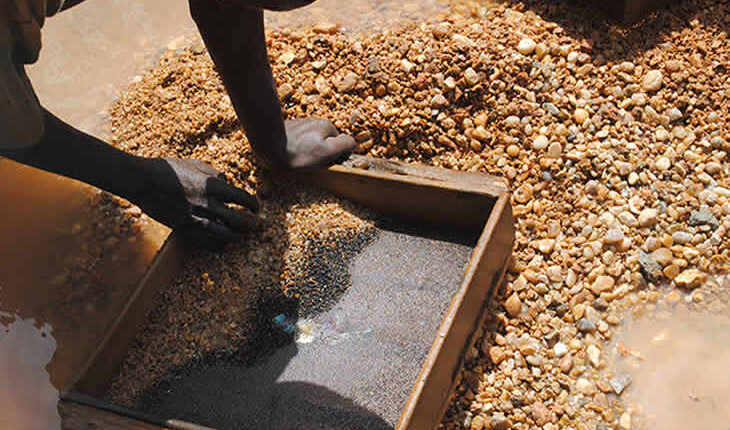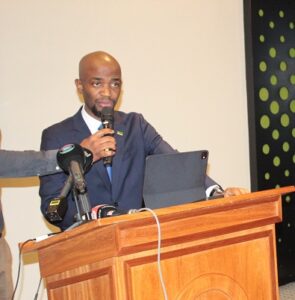
The Mozambican government acknowledged on Tuesday that the country is losing millions of meticais due to artisanal mining. During the opening of the Seminar on Reflection on Artisanal Mining in Mozambique, the Secretary of State for Mining, Jorge Daúdo, highlighted that the sector faces several challenges, such as tax evasion, money laundering and child labor. In addition, there are suspicions that some artisanal miners are involved in organized crime. The government official emphasized that “all Mozambicans are victims of unregulated activity” in the sector, which resulted in the loss of around 93 million meticais in tax revenue in 2021.
The data presented at the meeting refer to 2021, during which time gold was the most unregulated mineral resource, followed by precious and semi-precious stones (which). In terms of provinces, Niassa, Cabo Delgado, Nampula and Zambézia were the most exploited provinces.
In gold mining alone, in 2021, Niassa lost 212,249 meticais, Cabo Delgado 185,373 meticais, Nampula 116,844 meticais, Zambézia 271,356 meticais and the entire country lost a total of 1,268,722 meticais in tax revenue from gold alone.
On Tuesday, the Secretary of State for Mining took over the practice of artisanal mining, which continues to bring challenges, including “the use of inadequate technologies, environmental degradation, non-compliance with technical mining safety standards, informality, child labor, tax evasion, and money laundering.”
 “We have seen the invasion and/or vandalism of several mining enterprises, throughout almost the entire country, some of which are occupied by artisanal miners who are believed to be working for organized crime,” said Daúdo, stressing that the Government notes with concern “the involvement of the authorities in charging fees for authorization to mine minerals in listed areas and conservation areas, in the illegal purchase and sale of minerals, as well as the lack of compliance with the law in the processes of seizing minerals, among other vicissitudes.”
“We have seen the invasion and/or vandalism of several mining enterprises, throughout almost the entire country, some of which are occupied by artisanal miners who are believed to be working for organized crime,” said Daúdo, stressing that the Government notes with concern “the involvement of the authorities in charging fees for authorization to mine minerals in listed areas and conservation areas, in the illegal purchase and sale of minerals, as well as the lack of compliance with the law in the processes of seizing minerals, among other vicissitudes.”
The minister also highlighted, among several challenges, “the delay in issuing documents by other entities, conditioning the start of production and exposing the areas to artisanal mining.”
As a result, “there is a reduction in investments, creation of new jobs, collection of revenue for the State, construction of infrastructures, among other benefits.” According to the Secretary of State for Mining, the promotion of this seminar is part of the Government’s actions to seek solutions to the problems affecting the artisanal mining sector. “We are promoting this seminar to conduct an in-depth analysis on how to face and overcome these challenges. We consider an open discussion involving all stakeholders in the mining sector to be essential in order to design a new approach to the future of Artisanal Mining in Mozambique.”
Following efforts to organize the artisanal mining sector in order to contribute to the better performance of the Mozambican economy in 2021, the Government carried out the first Census of Artisanal Miners in Mozambique, which allowed the measurement of important indicators for the planning, implementation, monitoring and evaluation of development policies in this area. 2,162 artisanal mining hotspots were identified, of which 1,577 were active. Thirty-one percent of active sites are dedicated to gold mining and three-quarters of miners have artisanal mining as their main source of income.
The data collected are a light that allows the Government to carry out various actions throughout the country, to promote sustainable artisanal mining, in accordance with the norms and standards established by law.

